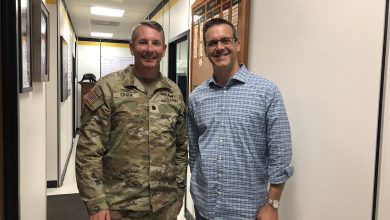Developing Tomorrow’s Leaders
By Mary Beth Kenkel, Ph.D., Dean, College of Psychology and Liberal Arts

Much of our country’s attention is now focused on selecting our new leader. We place great hope in our nation’s leaders—expecting them to improve the country’s health and economy, protect it from foes, unite disparate factions, and lead us on a path of growth and prosperity. That is a tall order and requires a leader with great skills and commitment.
However, good leaders are needed not only for the top jobs in government, business and organizations, but at all levels where groups of people are formed for a common purpose. Leaders are required in order to operate clinical programs, HR services, business teams, educational programs, as well as numerous clubs and organizations, e.g., the PTA and little league teams. Where do people with those leadership skills come from? How are those leadership skills acquired?
A report from the Multi-Institutional Study of Leadership (Dugan & Komives, 2007) detailed the success of developing leadership skills in college students. It showed that certain college experiences can have a significant impact on leadership outcomes. These experiences include discussions about socio-cultural issues where students can hear political opinions and personal values very different than their own. Mentoring by faculty and peers, involvement in campus clubs, community service and holding leadership roles also led to gains in leadership dimensions.
We believe in making the development of leadership skills a central component of all of our academic programs. We provide experience for students to develop leadership skills not only because our society is in grave need of effective leaders, but also because increases in leadership development have many positive effects on the person and community. These include enhanced self-efficacy and character development, better academic performance and greater civic engagement.
Close mentoring by faculty and peer mentoring are central features of our undergraduate and graduate programs. Many of the faculty mentoring relationships start through the students’ involvement with faculty research projects and grow over time to a lifelong bond. As developing leaders, students also need exposure to ideas and views different from their own. Through both formal classes and extracurricular lectures and experiences that involve socio-cultural diversity, students become better aware of their own beliefs and values, and how to collaborate with others with different viewpoints.
One of the most effective ways our programs use to develop leadership is by providing students with the opportunities to take the lead on different projects or initiatives. You can read about many of those initiatives in this and other issues of Journey. Our majors in psychology, forensic psychology and ABA often assume leadership roles during their internships, such as teaching job-seeking skills to inmates at the jail. Behavior analysis students plan and hold successful BASA conferences each year. Many clinical psychology students take leadership roles in clinical treatment programs like the Family Learning Program and the Memory Disorder Clinic. The Institute for Cross-Cultural Management has been a tremendous training ground for leaders, with industrial-organizational psychology students assuming key roles in the development of its many initiatives. Through these experiences and more, we ensure that our graduates will be ready for the leadership roles that await them.





